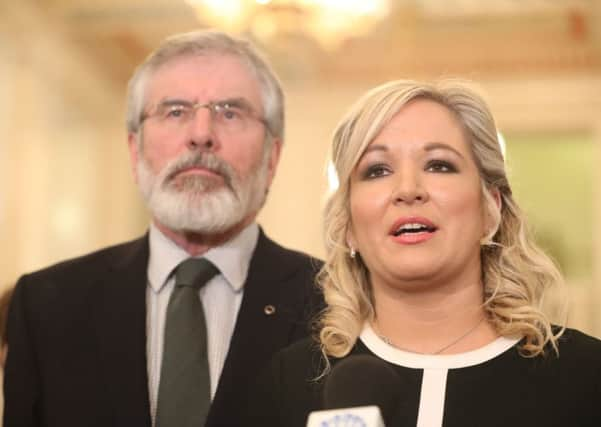A Truth and Reconciliation Committee will have little credibility in this post-truth age


I also note the response of Doug Beattie, MLA (News Letter, April 3), when he is quoted as saying:
“He has already proven that he won’t tell the truth. What he is really saying is ‘I will come forward and I will tell the truth if there’s an amnesty there so I can’t be prosecuted for what I’m going to say’. If it’s not there he’s going to say nothing. I see no credibility in that man whatsoever and I wouldn’t trust a word that comes out of his mouth.”
Advertisement
Hide AdAdvertisement
Hide AdGerry Adams, as a practising Roman Catholic, is well aware of the Jesuit teaching of Mental Reservation.


The ‘Report of the Commission of Investigation into the Catholic Archdiocese of Dublin’, commonly known as ‘The Murphy Report,’ outlines the Roman Catholic church’s concept of “mental reservation”.
Cardinal Desmond Connell, Archbishop of Dublin, explained this Jesuit construct to the commission as follows:
“Well, the general teaching about mental reservation is that you are not permitted to tell a lie. On the other hand, you may be put in a position where you have to answer, and there may be circumstances in which you can use an ambiguous expression realising that the person who you are talking to will accept an untrue version of whatever it may be – permitting that to happen, not willing that it happened, that would be lying ... So mental reservation is, in a sense, a way of answering without lying.”
Advertisement
Hide AdAdvertisement
Hide AdMore recently, the late Father Gerry Reynolds defended Sinn Féin president Gerry Adams’s denial of membership of the IRA on mental reservation grounds.


In an interview with the journalist Martin O’Brien, of the Irish Catholic, shortly before his death, he claimed that it was nobody’s business whether Mr Adams was in the IRA or not.
It was “a legitimate mental reservation”, he said.
When O’Brien suggested that some would claim Mr Adams was lying, he replied: “He’s entitled to that mental reservation, that he is not going to tell people that he doesn’t believe have any right to know.”
Such was the concern of the Reformers that those who drew up the Westminster Confession of Faith, when they came to write a Chapter on ‘Lawful Oaths and Vows’ (Chapter 22, IV) stated:
Advertisement
Hide AdAdvertisement
Hide Ad“An oath is to be taken in the plain and common sense of the words, without equivocation, or mental reservation.”
Clearly in this post-truth world a ‘Truth and Reconciliation Commission’ will have little credibility.
Brian Kennaway, Presbyterian Minister (Retired)